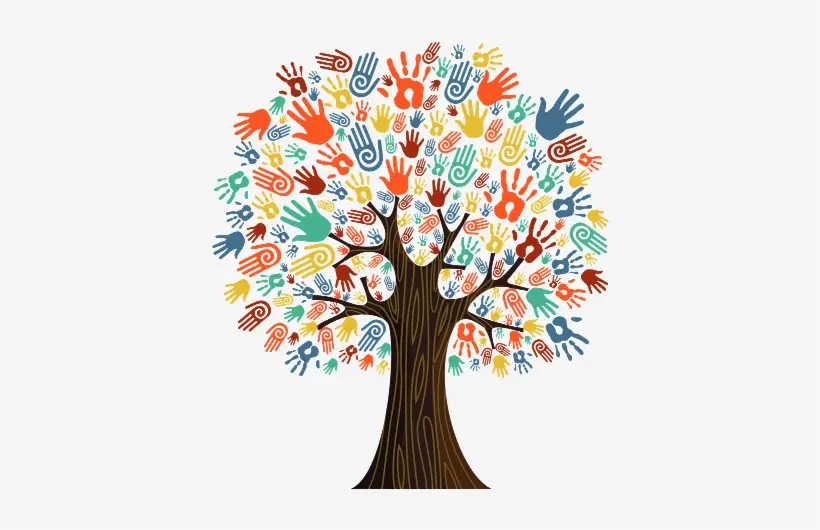We can't talk about maternal mental health without also talking about how our culture devalues mothering

The health of our mind (mental health), is not separate from the health of any other part of our body or being. It’s also not separate from the health of our relationships, community, the land or the cultural systems we live in.
Public mental health work in the UK seeks to assess and label individual mothers for a mental health problem quickly. This process and diagnosis happens without looking at the personal or cultural root causes of why this could be the case.
This turns cultural failures (of which there are many ~ lack of adequate support and overall devaluing of mothering in society etc) into an individual problem that needs to be treated or medicated.
This is done so the mother can fit neatly and happily back again into societies acceptable and expected ‘mother mould’ that keeps modern motherhood ticking along as usual. But if we look at the statistics for maternal mental health, motherhood as usual isn’t working for mothers.
When the cultural and societal root causes of maternal mental health are not also addressed, mental health services could be seen as normalising and upholding cultural norms of motherhood that are harmful to mothers.

I see maternal mental health as one of our key cultural barometers to let us know how well we are doing as a society. Here’s the latest on how our mothers in the UK are doing:
At least 1 in 5 mothers receive a mental health diagnosis during or after pregnancy
Suicide is the leading cause of maternal death
The maternal mental health crisis costs £8.1bn each year
Black/ minority ethnic women, young mothers & those facing domestic abuse, poverty experience more mental health challenges & poorer care

But what if we look at it differently to see how the maternal mental health crisis is a gateway for us all into a different way of being?
The mothers (life givers) not being well, like the canary in a coal mine, could be the thing that helps us see that something fundamental about the way we are relating to life has gone awry?
My motivation to write this is to hold a space for the following questions that I think are really important to consider this maternal health mental awareness week.
They are open ended questions that have emerged through my own experience and my work supporting mothers. They are wonderings for change that don’t have clear, measurable answers. The space between these questions for me, is where the real enquiry needs to happen around maternal health:
What if depression is an appropriate response to mothering a child in a mono-generational nuclear family in a capitalist society?
What if birth trauma is really birth initiation?
What if anxiety, OCD and PTSD are gateways for change?
What if that background sense of constant despair is the quiet cry we all need to change our collective trajectory?
What if mother rage is valid and needed?
What if we had the time and inclination to turn our gaze to really witness and listen to what the mothers are feeling and experiencing?
What if we could prescribe elders, sisterhood and community?
What if we held space for it all before medicating it away?
What if we felt through the breakdowns until the breakthrough came?
What if the maternal mental health crisis is a pathway out of disembodied, isolated motherwhelm?
What if how we are feeling is our deep longing for a new, emergent story we so desperately need for modern motherhood?

Like I say, I don’t have answers but I do have enquiry. But I do know that when it comes to lasting deep healing of any sort, it’s not usually a quick fix. The only way is through the discomfort ~ again and again and for as long as it takes.
I also know that mothering is truly an act of true regenerating love and life giving care. I see that mothers everywhere, right now are shaping the future for us all.
When a mother is supported to heal, the healing becomes vast and unmeasurable. It ripples out through the lives of her children, her family and her community through her love, dedication and presence.
This is why looking at the wider root causes of maternal mental health is so important. It is why centring, valuing and supporting mothers is so needed. It is why I’m here to offer my support to mothers.

In my work, I meet mothers beyond the diagnoses and the societal expectations put on them. I guide mothers to understand that the way they feel or the symptoms they experience is not a personal failing but rather an understandable response to a harsh maternal context.
The feeling of not being good enough is very common amongst mothers and is largely down to internalised cultural conditioning. Story medicine work is powerful in re-storying these beliefs about what ‘a good mother’ should do that we internalised growing up. We work together to dispel the myths and put things in place to move towards a liberated motherhood that feels right for them.
Expanding the capacity of our body and nervous systems as modern mothers through changes in diet, lifestyle and working with herbs and nervous system awareness is essential. And it is important to acknowledge that this work is only necessary because the village of support we evolved to expect and have is no longer there.
When I offer clients a toolkit for self care and healing, it definitely helps to navigate the terrain of modern motherhood. However, it must be accompanied with some aspect of community care to knit them into a larger support system. This is an ongoing enquiry in my work for how to support mothers in community building and re-villaging.
I want mothers to know that they are not alone in how they feel and to not take responsibility for the much bigger, failing societal maternal story at play.
I want mothers to understand that the social context of mothering also needs deep healing.

Right now, mothers are raising the next generation without the village of support their nervous system evolved to expect and receive.
I know that maternal healing will come from a weaving together of self care and community care. So I want us all to understand that maternal mental health crisis is all of our responsibility.
As a collective, we need to cultivate the village heartedness and life-sustaining ways of being that will enable us to truly value and support everything mothers are and everything mothers do to shape our shared future.